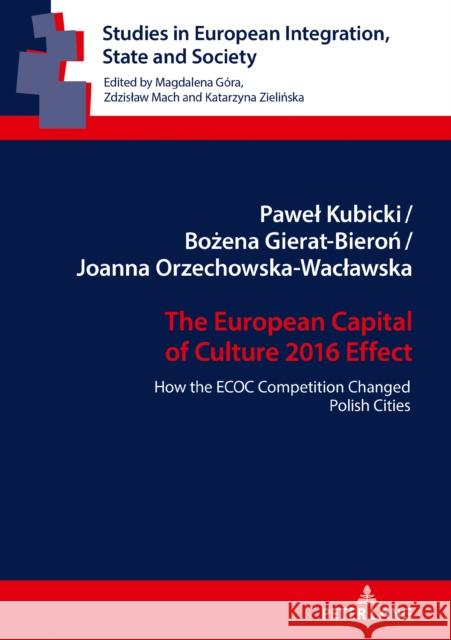The European Capital of Culture 2016 Effect: How the Ecoc Competition Changed Polish Cities » książka
topmenu
The European Capital of Culture 2016 Effect: How the Ecoc Competition Changed Polish Cities
ISBN-13: 9783631818787 / Angielski / Twarda / 2020 / 222 str.
The book analyzes the set of consequences of Polish cities' participation in the competition for the title of European Capital of Culture 2016, which was held between 2007 and 2011.











